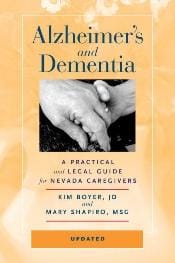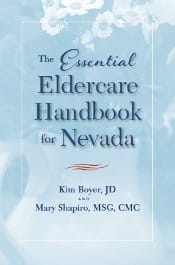VA Issues New Policy On Aid And Attendance
By Kim Boyer
I visited San Antonio, Texas for training. During our breaks, we walked along the beautiful river walk, and visited The Alamo. As we were getting ready to board our return flight, they called for all the sailors and soldiers to board the plane first. The crowd waiting to board broke into loud applause for our troops, a simple reminder of how special those men and women are who serve our country during war.
To reflect how important wartime veterans are, the Department of Veterans Affairs (“VA”) has long offered a special monthly pension to wartime veterans and their widows. A married veteran can receive up to $2,054.00 tax free monthly income (2013 figure).
This benefit does not require the veteran be injured during service. It requires that the veteran had to have served on active duty at least 90 days, with one of those days during a period of war. The 90-day requirement is increased to a period of 2 years for the Gulf War. Service in combat is not required, only that the veteran was on active duty in the military during wartime and was discharged other than dishonorably. There are also income and asset requirements.
The income rule is that family income cannot exceed the Maximum Allowable Pension Rate (“MAPR”) for the category being applying for. Household income may be reduced to meet the pension income test. Out-of-pocket cialis medical costs may be annualized and deducted from a claimant’s household income. Medical costs can include the cost of in-home care, an assisted living facility, or nursing home. It can include professional aides or money paid to a family caregiver (not including the spouse), friends or people hired independently to provide care in the home.
This allows households earning $2,000.00 or more a month to qualify for VA pension benefits even though their current non-adjusted income does not meet the income test. The VA recently issued a new policy addressing what it takes to be able to deduct the cost of assisted living or independent living expenses.
Room and board is considered an unreimbursed http://www.elderlawnv.com/articles/va-issues-new-policy-on-aid-and-attendance/ medical expense when the facility provides custodial care. (See VA Fast Letter 12-23 dated October 26, 2012). VA defines custodial care as assisting with the activities of daily living (ADL). ADLs are “basic self-care and includes bathing or showering, dressing, eating, getting in or out of bed or a chair, and using the toilet.” VA considers a facility to provide custodial care if it assists an individual with two or more ADLs. If the claimant resides in a facility to receive custodial care from a third-party provider, room and board can be considered a medical expense if properly documented.
The physician must certify that the resident needs custodial care and assistance with at least two ADLs, and that the named facility is providing such care. A letter from the facility affirming that it is providing assistance with those specific ADLs is also needed, unless a third-party home health care company is providing care. If that is the case, then a letter from the third party provider is needed.
Disclaimer: Information provided as a service of Kim Boyer, Certified Elder Law Attorney, updated as of 03/30/13. It does not constitute legal advice. For specific questions you should consult a qualified attorney.





